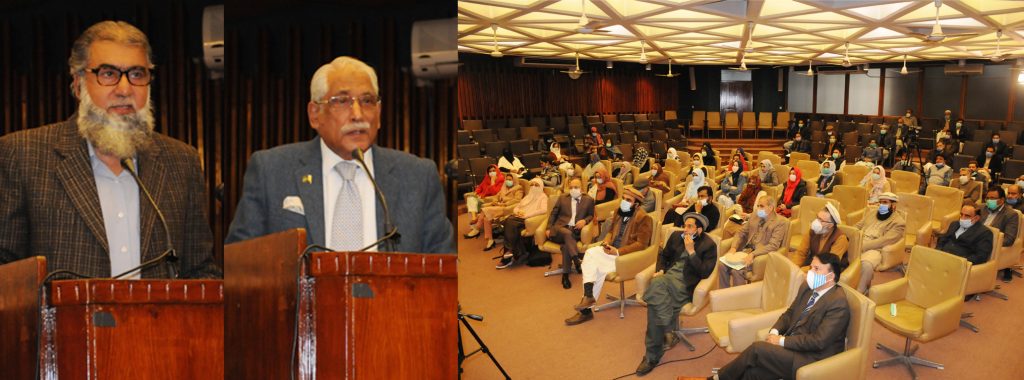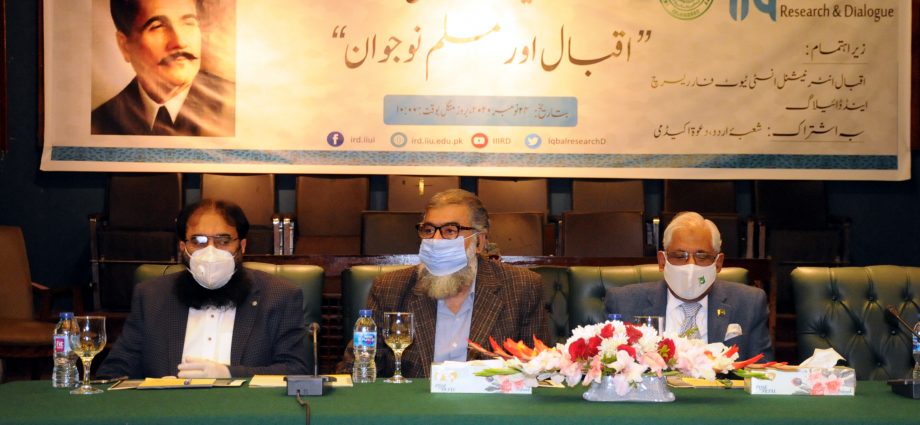ISLAMABAD ( WEB DESK )
Discussing the life and thoughts of Dr. Allama Muhammad Iqbal and his connection with
Muslim Youth, intellectuals in a seminar at International Islamic University, Islamabad (IIUI)
Tuesday said that revival of the Muslim’s glories is possible by following the Iqbal’s philosophy
of independent reasoning and utilization of youth for unity in the ranks of Muslim World.
Seminar on “Iqbal and Youth” was organized here at IIUI’s Faisal Masjid campus by Iqbal
International Institute for Research and Dialogue (IRD) in collaboration with Department of
Urdu and Dawah Academy.
The speakers shared their thoughts on Iqbal’s work, message and application of his ideas in the
society. Participants opined that country can acquire socio-economic targets by following the
guiding principles of poet of East.

They further said that Iqbal’s poetry is specially dedicated and helpful in uplifting the lowest and
stressed community of the society. The speakers were of the view that today, Iqbal’s philosophy
is the solution of all challenges to humanity as it is based on equality, justice, love and peace.
They said Iqbal also teaches to love natural phenomena or nature, education and research.
“Iqbal told youth not to be impressed by fake glitter of west, while he encouraged them to move
forward in various field of life with a blend of Islamic teachings” said Dr. Masoom Yasinzai,
Rector IIUI. He added that country’s educational system must reflect thoughts of great thinker
as it would pave the way to lead the world in the light of Islamic teachings. He opined that Iqbal
advocated the Muslim Ummah’s unity and this salient feature is a pre-requisite for a prosperous
future, while it also can help in discouraging sects and racism. IIUI Rector desired that
frequencies of such seminars be increased at male and female campuses of the university.
On the occasion, Dr. Muhamamd Akram Shaikh (HI) also delivered a lecture on “ Islam: A
complete code of conduct”. The event was also addressed by famous literary figures, researchers
and academicians including Akhtar Usman, Dr. Najiba Arif, Dr. Humaira Ashfaq, Raja Zia ul
Haq, Dr. Tahir Mehmood, Dr. Sheeraz Fazal Dad, Professor Abdullah Ehsan, Azhar Ashiq,,
Idrees Meraj, Maria Trimzi and Dr. Ghulam Fareeda.

